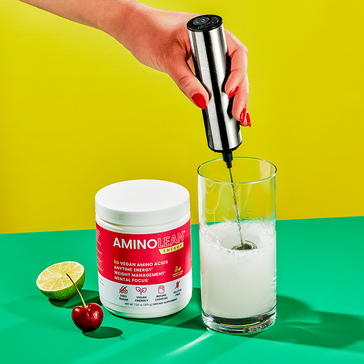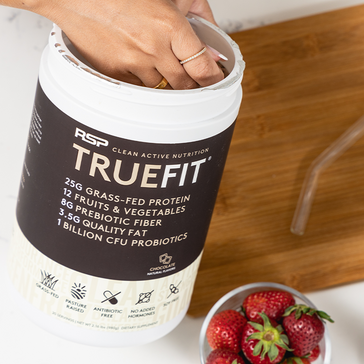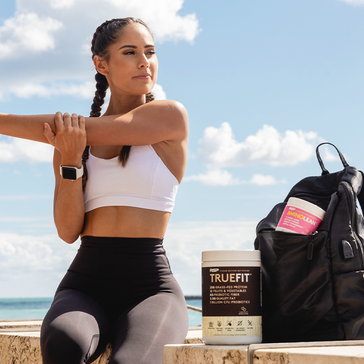By Registered Dietitian Tony Castillo
A lot of active individuals, both men and women, don’t understand how important protein is to lose weight without feeling constantly hungry and deprived. I’ve worked with people who thought having too much protein would make them bulky or they thought they were eating enough protein when they weren’t even close.
But here’s the thing: protein is key for both fat loss and muscle growth.
Let’s learn why.
Weight loss vs. fat loss
Before diving in, it’s important to know the difference between weight loss and fat loss.
Weight loss refers to a decrease in your overall body weight from muscles, water, and fat. On the other hand, fat loss refers to weight loss from just fat. It’s more specific, plus it’s a better goal to have than overall weight loss.
Why protein is important for fat loss
Losing weight typically means you need to go into a calorie deficit, which involves eating less calories than what your body needs. Naturally, you’re going to be hungry from this.
Hunger, especially from a calorie deficit, can lead you to foods that may not align with your goal of fat loss. You might reach for what’s available or something that’s high in calories. Instead, you want to be more mindful of what you do choose to eat.
So what makes protein a good option?
Protein is known to keep you fuller longer to help you stay on track as you work towards fat loss. On top of that, protein has been shown to help with muscle building.
How protein helps with muscle gain
Protein is essential to help maintain the muscle you already have and to create new muscle. Research has shown that when you eat a protein-rich meal every 3-4 hours it helps keep on a switch in your body called mTOR, which helps with muscle growth.
When you have a good percentage of muscle, it can help:
- Maintain blood sugar levels
- Maintain healthy fat levels such as triglycerides and cholesterol
- Control inflammation
You also burn more calories at rest when you have more muscle. Plus, who doesn’t like to feel stronger?
If you don’t eat enough protein, you may end up sacrificing muscle instead of building it. When it comes to new muscle, you’ll need to participate in resistance training and have protein during recovery to help repair your muscles so they can grow.
How much protein is needed to gain muscle?
It’s recommended for women to have between 1.2-1.6g per kilogram of protein a day and men to have between 1.4-1.8g per kilogram.
A 10-week study was conducted that involved two groups of participants eating protein every 3-4 hours.
One group followed a standard American diet, which included 10g of protein at breakfast, 20g at lunch, and 60g at dinner. This caused them to lose out on muscle gains because the muscle-building switch was only turned on once a day for those 10 weeks.
The other group had 30g of protein evenly distributed throughout the day. Participants gained 25% more muscle mass than the group who followed the standard American diet. If I told you that you could gain 25% more muscle mass just by eating protein every 3-4 hours, wouldn’t you already be doing it?
If you’re finding it challenging to meet your daily protein requirements, meal replacement shakes and protein smoothies can help. The TrueFit meal replacement powder varieties by RSP Nutrition are a great place to start, since they also include nutrients from 12 fruits and vegetables, pre and probiotics plus MCT Oil. TrueFit is also available in a Vegan Protein Powder for anyone who prefers a plant protein powder.
All in all, losing fat and gaining muscle weight requires you to eat protein at all meals and snacks throughout your day. Do this and you’ll be on your way to a leaner physique and improved strength in no time.





